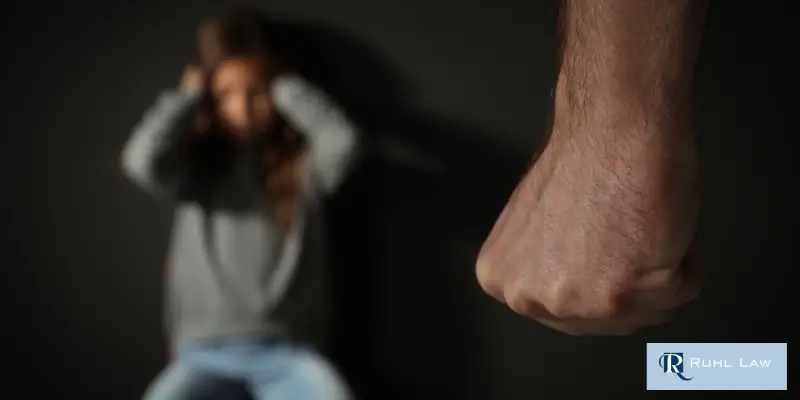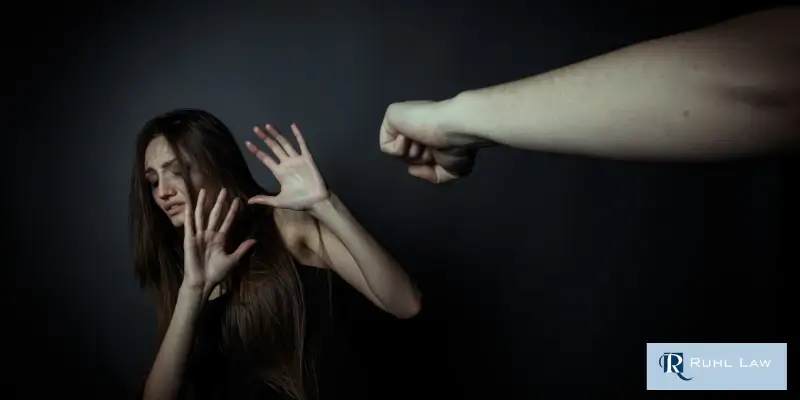Florida Domestic Violence Arrest: What You Need to Know About the Legal Process

Florida Domestic Violence Arrest: What You Need to Know About the Legal Process
A domestic violence charge can result in immediate jail time and long-term consequences even before you make it to trial. When you’re facing a Florida domestic violence arrest, you need a strong understanding of the legal process, including Florida domestic violence laws, penalties, and why it’s so important to hire a domestic violence lawyer as soon as possible.
What Is Considered Domestic Violence in Florida?
Under Florida law, domestic violence is more than just physical abuse. It encompasses all types of assault, stalking, kidnapping, sexual abuse, and any other crime that results in the injury or death of a family or household member. Over 100,000 domestic violence incidents were reported in 2020 in the state. These accounts lead to just over 63,000 arrests. Overall, domestic violence makes up 20% of the deaths reported in Florida annually.
Family or household members can include:
- Spouses or former spouses
- Persons related by blood or marriage
- Individuals who currently live or have lived together as a family
- Parents of a child in common

What Happens After a Domestic Violence Arrest in Florida?
A domestic violence case begins the moment you’re arrested. But the criminal justice process involves multiple stages. Here’s what you can expect:
- Arrest and booking. If police believe a domestic violence crime occurred, they’re legally obligated to make an arrest. You’ll be taken to jail, fingerprinted, and booked. Domestic violence accusations do not make you eligible for immediate bond release.
- First appearance hearing. At your first appearance, the judge will review your arrest and determine if there was probable cause. They will set a bond amount or deny bond entirely. You may face a no-contact order with the alleged victim and have some restrictions set in place.
- Formal charges filed by the state attorney. After the arrest, the State Attorney’s Office reviews the evidence to determine whether to file a formal charge. Even if the victim wants to drop the case, prosecutors can proceed without the victim’s cooperation.
- Arraignment. If charges are filed, you’ll get a court date for arraignment. At this hearing, you’re formally informed of the charges against you, and you can enter a plea of guilty, not guilty, or no contest.
- Pretrial proceedings. This phase includes discovery, filing motions, negotiating a plea deal, and preparing for trial. Your domestic violence lawyer will commence their investigation of your case by interviewing witnesses and exploring all available evidence to build your case.
- Trial or resolution. If your case goes to trial, a judge or jury determines your guilt. Many domestic violence cases are resolved through plea deals or dismissed because of a lack of evidence or errors in procedure.
Penalties for Domestic Violence in Florida
A conviction for domestic violence can lead to harsh legal penalties and life-changing consequences. The severity of your sentence depends on the facts of your case, your prior criminal history, and whether there were aggravating factors present in your case. Some common penalties for domestic violence charges include:
- Jail or prison time
- A mandatory batterers’ intervention program
- No-contact order or restraining order
- Loss of firearm rights
- Probation
- Community service
- Fines and court costs
- Permanent criminal record
Defenses Against Domestic Violence Charges
There are many defense strategy options for domestic violence cases. A domestic violence attorney can create a defense based on the specifics of your case. Some common defenses include:
- Self-defense. If you acted to protect yourself or others from harm
- False allegations. If the accuser fabricated or exaggerated the event
- Lack of evidence. If no physical injuries are present or there were no witnesses
- Mutual combat. If both parties were involved in the altercation
- Accidental contact. If the incident was not intentional
Why You Should Choose the Team at Ruhl Law, P.A.
If you’re facing a Florida domestic violence arrest, you need an attorney you can trust. The domestic violence attorneys of Ruhl Law, P.A. have a proven track record of success in handling domestic violence cases. We hold deep knowledge of Florida domestic violence laws and can advocate for you throughout the legal process.
No two cases are the same, so we tailor each defense to your individual needs and circumstances. We maintain open communication so you can ask any questions you have and stay informed about the case.

FAQs About Domestic Violence Law in Florida,FL
Does Florida Have Mandatory Arrest for Domestic Violence?
Florida law mandates arrest in domestic violence cases if there is probable cause that a crime has occurred. Police officers do not need a warrant and are required to make an arrest if they believe domestic violence has taken place. This applies even if the alleged victim does not want to press charges. This policy aims to protect victims and prevent further harm, but it can also lead to arrest in cases involving minimal evidence.
Can Domestic Violence Charges Be Dropped in Florida?
In Florida, only the State Attorney’s Office has the authority to drop domestic violence charges, not the victim. Even if the victim wants to withdraw their complaint, prosecutors may still pursue charges based on police reports, witness statements, or other evidence. The state takes domestic violence very seriously. However, a defense attorney may be able to persuade the prosecutor to drop charges or negotiate a more favorable resolution.
How Does Domestic Violence Work in Florida?
Domestic violence includes crimes like assault, battery, and stalking. Once reported, police may make an immediate arrest if they have probable cause. The accused may face a no-contact order, mandatory court appearances, and criminal penalties, such as jail time, fines, and probation. Domestic violence convictions can also affect custody, employment, and firearm rights.
How Do Domestic Violence Arrests Work?
In Florida, when law enforcement responds to a domestic violence call, they assess the situation for probable cause. If there is evidence of abuse or harm, they are required by law to arrest the accused, regardless of whether they have the victim’s consent. They’re then taken to jail to be held until they appear before a judge. At that hearing, a bond is set, and a no-contact order can be issued.
Hire a Domestic Violence Lawyer
Getting legal representation as soon as you find yourself facing a Florida domestic violence arrest is crucial. The team at Ruhl Law, P.A., can help you protect your rights and freedoms. Contact us today to schedule a consultation so we can begin building your unique defense strategy.
© 2026 Ruhl Law, P.A. • All Rights Reserved.


